One of the “protagonists” of the Synod was an American cardinal who gave several interviews which circled the globe. He came to be depicted as one of the key voices of the “conservatives” .
The world likes Cardinal Raymond Leo Burke very little or not at all. And, if it is possible, the Church likes him even less than does the world. On the other hand, this 66-year-old American from Richland Center, Wisconsin, has done everything as a Catholic to successfully carry out his intent to set a fire under the consciences of Christians who are all too inclined to tepidity. He participates in the Marches for Life, he says that Communion is not to be given to those politicians who support abortion laws, he denounces the rapid progression of the homosexual agenda, he makes Pope Francis know that the defense of the non-negotiable principles is not something that depends on the moods of Popes, he supports the Mass in the Traditional Rite. Recently he authored one of the essays in the recently-published book, Remaining in the Truth of Christ: Marriage and Communion in the Catholic Church. This book was written in open opposition to the attempt on the part of Cardinal Kasper, using his own concept of mercy, to define a new understanding of the family and giving Holy Communion to those divorced and remarried. It is not strange, therefore, that part of the curial shuffling decided upon by Bergoglio will have the result that Burke will go from being the prefect of the Apostolic Signatura, to a position of exile as the Cardinal Protector of the Sovereign Knights of Malta. But meanwhile, at the Synod on the Family, this very fine canonist, a son of rural America, has taken on the role of the leader of the opposition, or perhaps better to say the katechon, against the change in direction that has been laid at the door, without denial, of the mens papale itself. It is as if the old “Polyglot Bible” were sitting on the reading desk in his study, opened to the passage from Ecclesiastes where we read: “For everything there is a season… a time to be silent and a time to speak.”
What do we see happening at the Synod on the other side of the “media curtain”?
Cardinal Raymond Leo Burke: We see a worrisome skewing of the discussions, because there are some who support the possibility of adopting a practice that departs from the truth of the faith. Even if it should be evident that one cannot go down that path, many still encourage, for example, a dangerous openness to change with respect to the question of giving Holy Communion to those divorced and remarried. I do not see how it is possible to reconcile the irreformable understanding of the indissolubility of marriage with the possibility of admitting to Communion those who are living in an irregular situation. To do this is to act as if our Lord’s words were up for discussion when he taught that whoever divorces his wife and marries another woman commits adultery.
According to the “reformers” this teaching has become too harsh.
They forget that the Lord assures us of the help of his grace to those who are called to live in marriage. This does not mean that there will not be difficulties and suffering, but that there will always be divine assistance to face them and to be faithful to the end.
It seems that you represent a minority position.
A few days ago I saw a statement broadcast in which Cardinal Kasper said that things were moving in the correct direction towards openings (to the change of practice). In a few words, the 5,700,000 Italians who followed that broadcast statement were led to believe the idea that the whole Synod is marching on this path, that the Church is on the point of changing her doctrine on marriage. But this is simply not possible.
Many bishops have said in their speeches that changes in the doctrine of marriage are not possible. But what you say is not coming out of the daily briefing from the Vatican Press Office. Cardinal Müller has also complained about this.
I do not know how this “briefing” works, but it seems to me that something is not working well if the information is manipulated in a way so as to stress only one position instead of reporting faithfully the various positions that were expressed. This worries me very much, because a consistent number of bishops do not accept the idea of a break with traditional Church teaching, but few know this. They speak only of the necessity for the Church to open herself up to the clamorous urging of the world as Cardinal Kasper propounded in February. In reality, his thesis on the theme of the family and on a new form of discipline with respect to the divorced and remarried is not new. It was already discussed thirty years ago. Then from this February on it took on a new life, and it has been allowed to grow in a not innocent way. But this must stop, because it is provoking the possibility of great damage to the faith. Bishops and priests say to me now that so many divorced and remarried men and women are asking to be admitted to Holy Communion because this is what Pope Francis wants. In reality, I take note that, to the contrary, he has not expressed himself on this subject.
But it seems evident that Cardinal Kasper and those who speak in agreement with him claim that they have the support of the Pope.
This is true. The Pope named Cardinal Kasper to the Synod and has let the debate go along this track. But, as another Cardinal has said, the Pope has not given his pronouncement on all of this as yet. I am awaiting his pronouncement, which is able to be only in continuity with the teaching given by the Church through her whole history, a teaching that has never changed because it cannot change.
Some prelates who support the traditional doctrine say that if the Pope should make changes (in that doctrine) they would support those changes. Is this not a contradiction?
Yes, it is a contradiction, because the Pontiff is the Vicar of Christ on earth and therefore the chief servant of the truth of the faith. Knowing the teaching of Christ, I do not see how it is possible to deviate from that teaching with a doctrinal declaration or with a pastoral practice that ignores truth.
The emphasis placed by the Pope on mercy as the most important, if not the only, idea that should guide the Church: does this not contribute to sustaining the illusion that one can advocate pastoral practice that is set loose from doctrine?
The idea is bandied about that there can be a Church which is merciful and that at the same time does not respect the truth. But I am offended by the abysmal idea that, until today, bishops and priests could not have been merciful. I was raised in a rural area of the United States, and I remember that, when I was a child, there was in our parish a couple from a farm near ours who came to Mass in our church but never received Communion. As I grew up, I asked my father why they did this. He answered my question without any affectation and in a simple way. He explained that they were living in an irregular situation and they accepted that they could not receive Communion. The parish priest was very gentle with them, showed them great mercy, and he applied that mercy in working toward the point where the couple would be living their lives in accord with the Catholic faith. Without truth true mercy cannot exist. My parents always taught me that if we love sinners, we must hate sin, and that we must do everything we can to tear away the sinners from the harmful situation in which they are living.
In your study there is a statue of the Sacred Heart. In your chapel, above the altar, there is another image of the Heart of Jesus. Your episcopal motto is “Secundum Cor Tuum.” So a bishop is able to hold together both mercy and doctrine…
Yes, it is by staying close to the inexhaustible and never ceasing font of truth and love, that is, from the glorious pierced Heart of Jesus, that the priest finds the wisdom and the strength to guide his flock according to truth and with love. The Curé d’Ars defined the priest as the love coming from the Sacred Heart of Jesus. The priest who is united to the Sacred Heart will not succumb to the temptation to say to his flock words that are other than those of Christ which have been handed down in an indefectible way by the Church. He will not fall into the temptation to substitute for the words of a doctrine that heals a language that is confused and easily leads to error.
But the reformers maintain that love, for the Church, consists in walking along with the world.
This is the hinge of the reasoning of those who want to change doctrine or discipline. I worry about this very much. They say that times have changed, that we can no longer talk about natural law, or of the indissolubility of marriage…But man has not changed. He continues to be as God has wanted him to be. It is true that the world has become secularized, but this is a reason to all the more speak the truth in a clear and forceful way. It is our duty, but to do this, as St. John Paul II taught in Evangelium Vitae, we have to call things by their own name. We cannot use language that is more or less ambiguous to please the world.
Clarity does not seem to be a priority of the reformers, if, for example, they do not think that they are contradicting themselves, when they maintain that the divorced and remarried are able to receive Communion and at the same time recognize the indissolubility of marriage.
If someone sincerely reaffirms the indissolubility of marriage, he can take steps to rectify the irregular state in which he finds himself or abstain from Communion. There is no half-way.
Not even the so called “Orthodox divorce”?
Orthodox practice based on economia involving a second or third marriage, which are understood as penitential, is historically and in fact very complex. In any case, the Catholic Church, which has been aware of this practice for centuries, has never adopted it, in virtue of the words of the Lord as recorded in the Gospel according to St. Matthew (19:9).
Don’t you think that if this opening to change is conceded many more will follow?
Certainly. They are now saying that this will be granted only in some cases. But whoever understands men knows that if a concession is granted in one case, concessions are made in the rest as well. If the union between the divorced and remarried is conceded to be licit, this will open the doors to all those unions that are not according to the law of God, because that bulwark will have been eliminated that preserves good doctrine and the good pastoral practice that comes from it.
The reformers often talk about a Jesus who is disposed to tolerate sin to be able to go out and meet his people. But was this the case?
This picture of Jesus is an invention that has no confirmation in the Gospels. All one has to do is to think about the clash with the world in the Gospel of St. John. Jesus was the greatest opponent to the times in which he lived, and he remains so for our own time. I think especially of how he spoke to the woman caught in adultery: “Nor do I condemn you; go and sin no longer.” (John 8:11)
To admit those divorced and remarried to Communion threatens the Sacrament of Marriage, but also that of the Eucharist. Does this not seem to you to involve a drifting movement that touches the very heart of the Church?
In the First Letter to the Corinithians, in chapter 11, Saint Paul teaches that whoever receives the Eucharist in a state of sin eats it to his own condemnation. To approach the Eucharist means that one is in communion with Christ, is conformed to him. Many respond to oppose this by saying that the Eucharist is not the sacrament of the perfect, but this is a false argument. No one is perfect, and the Eucharist is the sacrament of the those who are struggling to be perfect, in the way Jesus asks us to be perfect: to be perfect as our Father who is in heaven (Mt. 5:48). Even those who are struggling to be perfect do sin, and if they are in a state of mortal sin, they are not able to receive Communion. To be able to receive they must confess their sin with a sense of remorse and with the intention of not committing the sin again. This is binding on everyone, including the divorced and remarried.
Today participation in the Eucharist is almost no longer understood as a sacramental act but rather as a social act. It no longer is communion with God, but rather as acceptance on the part of a community. Is not the root of the problem here?
It is true. This Protestant idea is being diffused more and more. And this not only in the context of the divorced and remarried. One often hears the sentiment expressed that, on special occasions like First Holy Communion and Confirmation of one’s children, or at a wedding, even non-Catholics are able to be admitted to Holy Communion. But this, one more time, is contrary to the faith and contrary to the truth of the Eucharist itself.
Instead of debating these themes, what should the Synod be doing?
The Synod is not a democratic assembly where the bishops are assembled to change Catholic doctrine by a vote of the majority. I would like it to become the occasion whereby the pastors give support to all families who want to live their faith and their vocation in a better way. Also to give support to those men and women who, even in situations fraught with many difficulties, do not want to cut themselves off from what the Gospel teaches.
This should be a Synod on the family, instead of losing itself in discussions that are not useful about matters that cannot be discussed in an attempt to change truths that cannot be changed. In my view, it would have been better to take these matters off the table because they are not open to discussion.
We should be talking rather about how to help the faithful live the truth of marriage. We should be talking about the formation of children and young people who come to marriage without knowing the fundamental elements of our faith and then are brought down by the first difficulty they encounter in the marriage.
Don’t the reformers think about those Catholics who have held their families together even in very difficult situations, and in these situations who have refused to make a new life for themselves?
So many people who have gone through this laborious life effort ask me now if they were totally wrong in their decision. They ask if they have thrown their lives away in making sacrifices that in the end are of no use. This is not acceptable. It is an act of betrayal.
Do you not think that the crisis in morals is deeply involved with the crisis in liturgy?
Certainly. In the post-conciliar period a collapse of the life of faith and of ecclesiastical discipline has taken place, seen especially in the liturgical crisis. The liturgy has become an anthropocentric activity. It has ended up by being a reflection of the idea of man instead of the right of God to be adored as he himself asks. From here, in the moral sphere attention is focused almost exclusively on the needs and wants of men, instead of on what the Creator has written in the hearts of his creatures. The lex orandi is always bound to the lex credendi. If someone does not pray well, then he does not believe well and therefore he does not behave well. When I go to celebrate the Traditional Mass, for example, I see so many beautiful young families with so many children. I do not believe that these families do not have problems, but it is evident that they have more strength to confront them. This has to say something. The liturgy is the most perfect and most complete expression of our life in Christ, and when all of this is lessened or is betrayed, every aspect of the life of the faithful is harmed.
What can a pastor say to a Catholic who feels bewildered by these winds of change?
The faithful should take courage, because the Lord will never abandon his Church. We should think about how the Lord calmed the sea in the storm and his words to his disciples: “Why are you afraid, you men of little faith?” (Mt. 8:26) If this time of confusion seems to put their faith at risk, they have to only work even harder to live a life that is truly Catholic. But I am aware that to live in these times is a source of great suffering.
It is becoming difficult not to think of this as a time of chastisement.
I think about this first of all concerning myself. If I am suffering at this time because of the situation in the Church, I think that the Lord is telling me that I have need of purification. And I also think that, if the suffering is so widespread, this means that the whole Church is in need of purification. But this is not because of a God who is waiting only to punish us. This is because of our own sins. If in some way we have betrayed doctrine, moral teaching or the liturgy, it follows inevitably that we will undergo a suffering that purifies us to put us back again on the narrow way.
[Published by the Rorate Caeli website in a translation from the original Italian by Fr. Richard G. Cipolla]


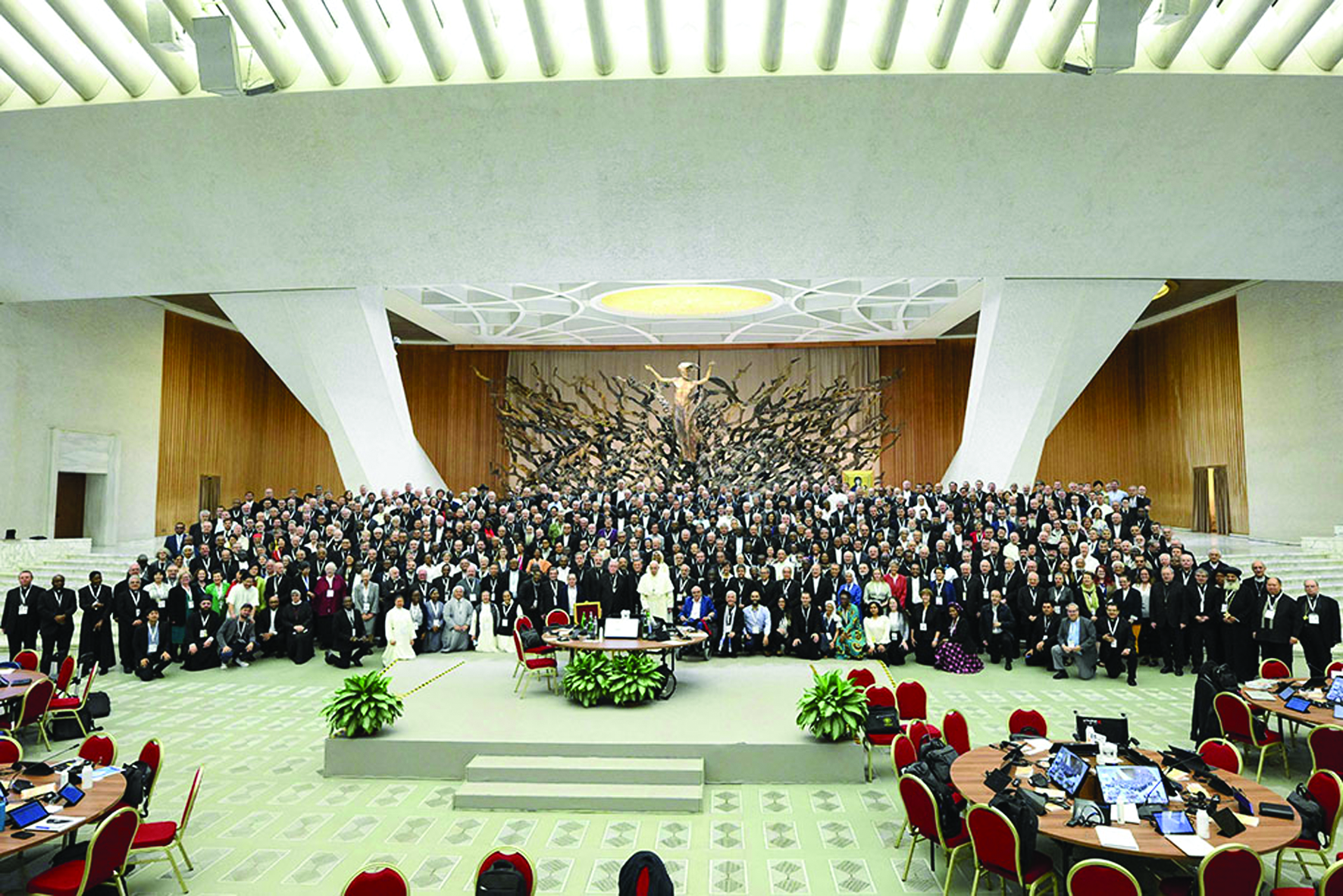
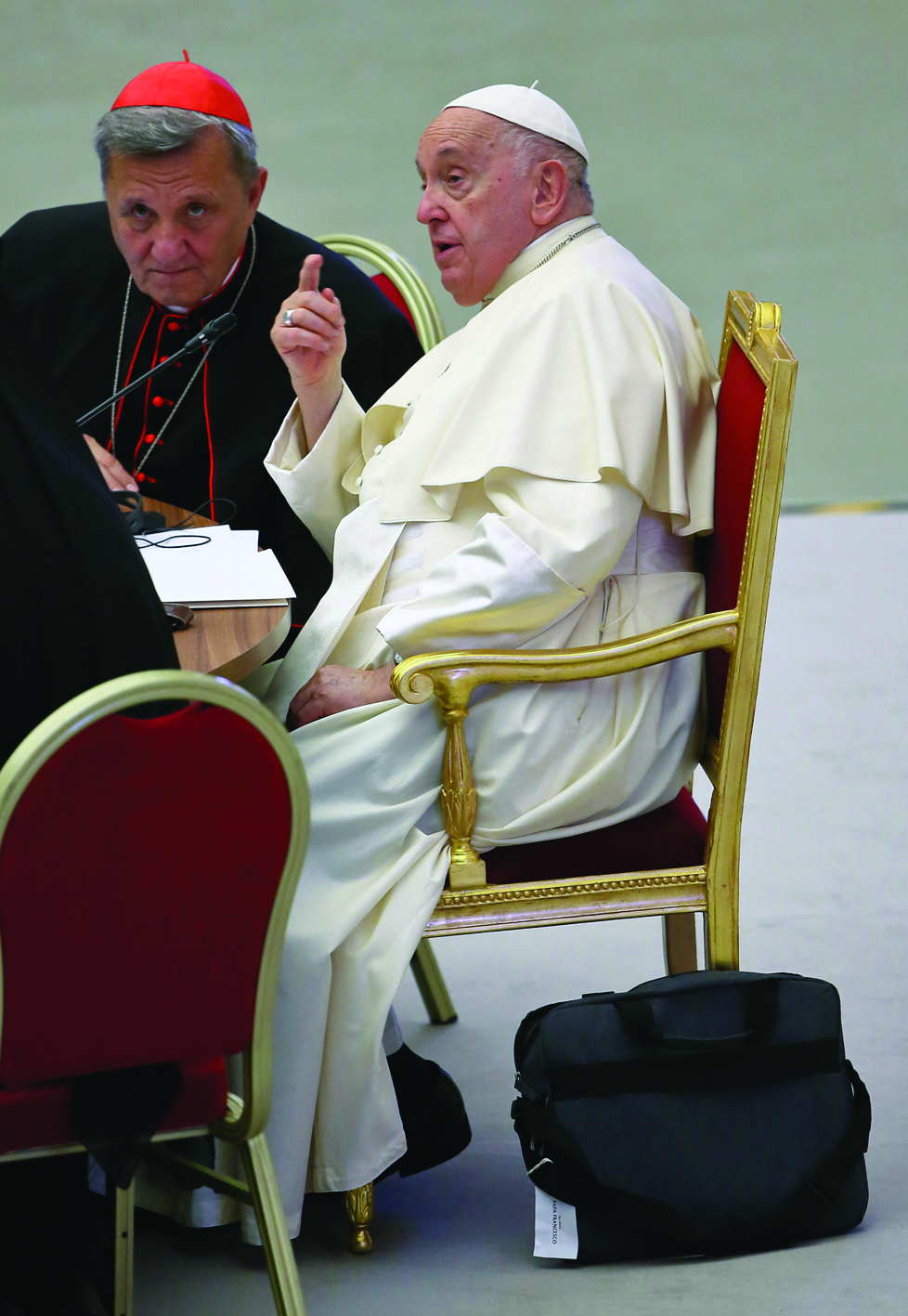
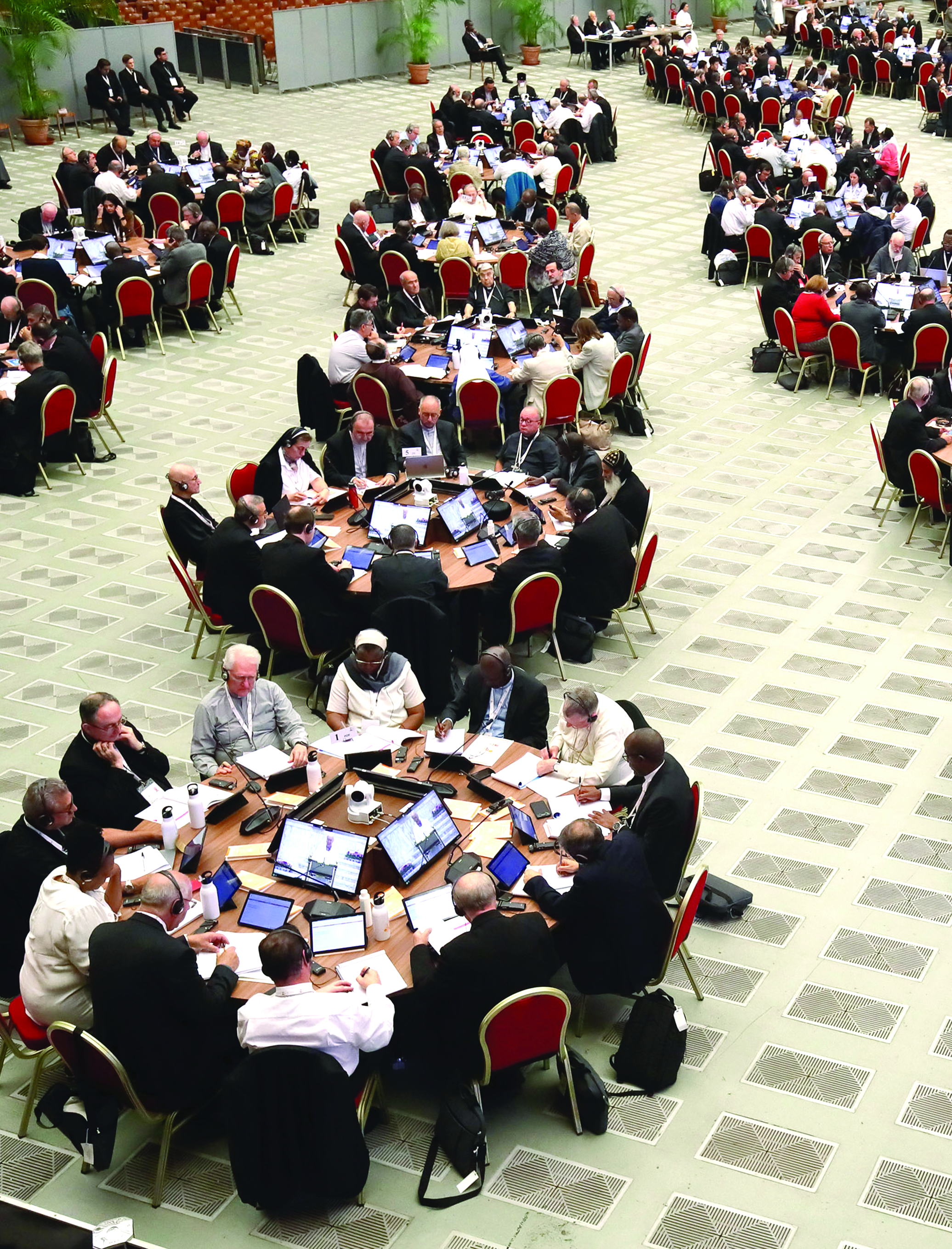
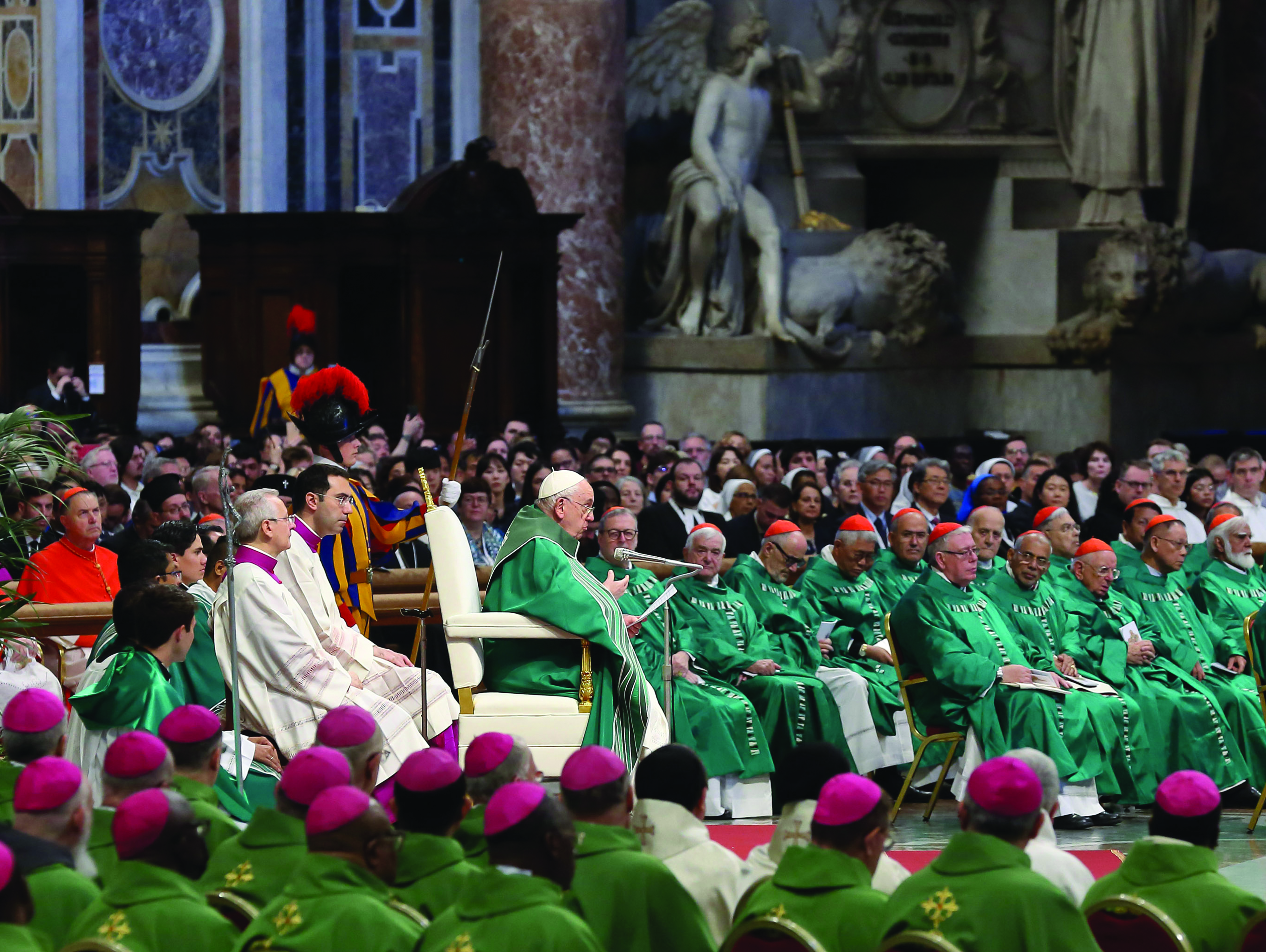
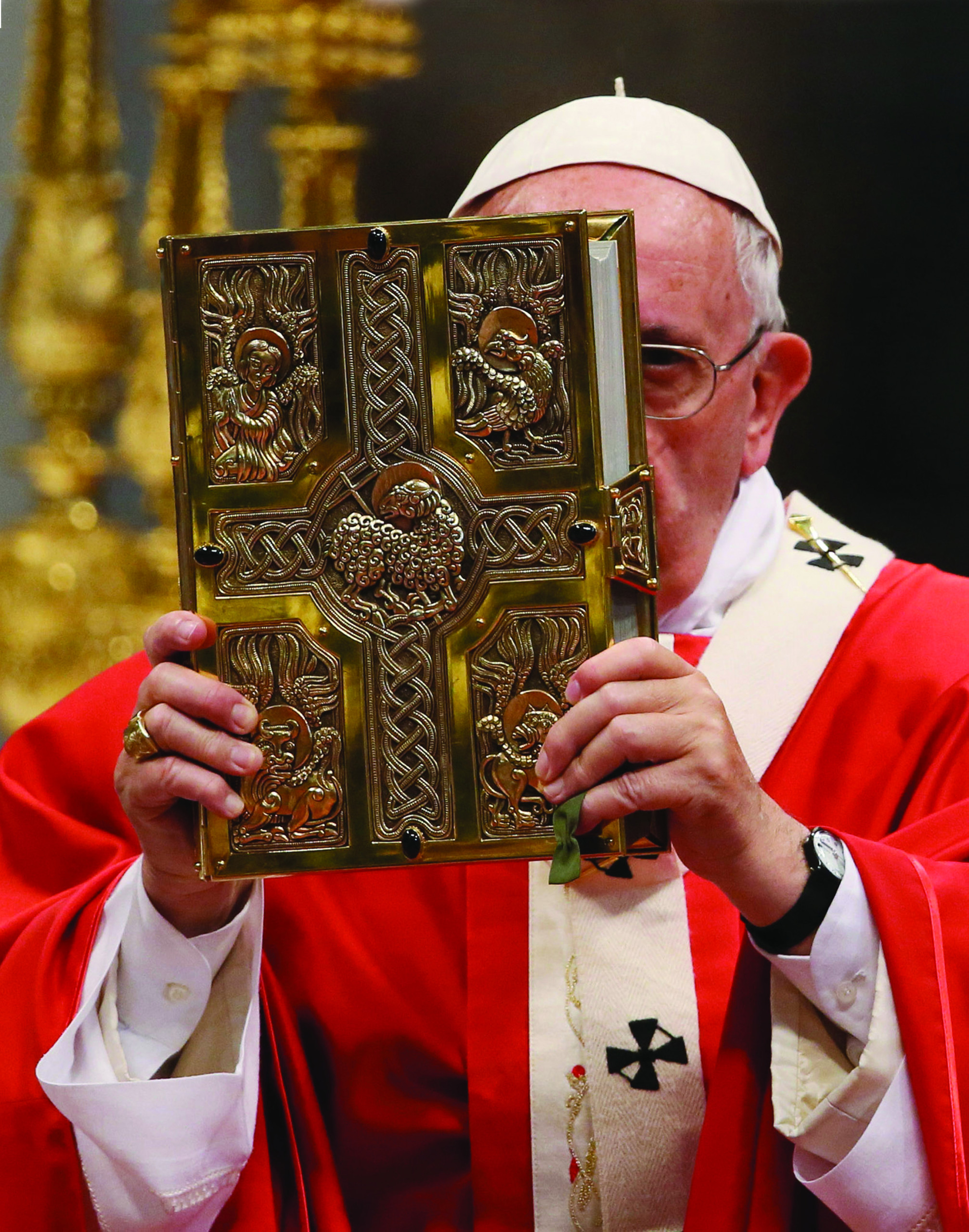
Facebook Comments